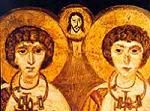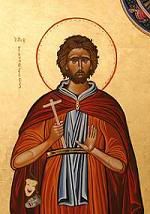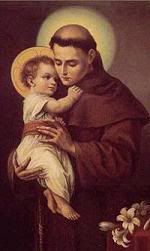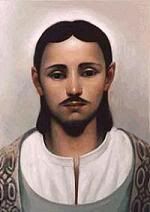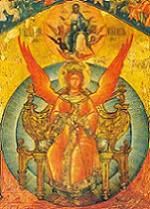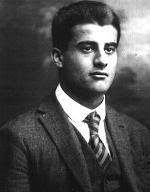 Friday we will celebrate the Feast of the Epiphany, and so in preparation, I wanted to share a traditional Epiphany practice which we still celebrate in my own parish. In the East, Epiphany is called Theophany, and it is celebrated January 13th in commemoration of the baptism of Jesus in the River Jordan; but in the West it is celebrated January 6th, and is generally associated with the visitation of the Magi to the infant Jesus. Both of these events call to mind the recognition of the manifestation of the Divine Light in the world. There are many traditional practices for Epiphany, including the special blessing of holy water for the sacrament of Baptism, after which parishioners usually take home small bottles of Epiphany water for use in their devotional practices.
Friday we will celebrate the Feast of the Epiphany, and so in preparation, I wanted to share a traditional Epiphany practice which we still celebrate in my own parish. In the East, Epiphany is called Theophany, and it is celebrated January 13th in commemoration of the baptism of Jesus in the River Jordan; but in the West it is celebrated January 6th, and is generally associated with the visitation of the Magi to the infant Jesus. Both of these events call to mind the recognition of the manifestation of the Divine Light in the world. There are many traditional practices for Epiphany, including the special blessing of holy water for the sacrament of Baptism, after which parishioners usually take home small bottles of Epiphany water for use in their devotional practices.
But one interesting and ancient practice that has been somewhat lost in recent years is the Epiphany chalk blessing. On January 6, after the Epiphany water has been blessed, the priest then blesses chalk, along with frankincense and myrrh for the congregation to take home to bless their houses. Sometimes people bring their own gold jewelry to also have blessed, thus representing the three gifts of the Holy Magi. I would love to discuss the symbolism of gold, frankincense, and myrrh; however the focus here tonight is on the chalk blessing. The origins of this blessing are lost in time, but the chalk is used to inscribe the initials of the names of the Magi (Caspar, Melchior, and Balthazar) along with the year above the door of one’s home, to bring God’s blessing of prosperity to all throughout the following year. The initials remain above the door until Pentecost, at which time they may be washed off. The color of the chalk is not important, as long as it’s visible against the backdrop of the lintel.
Blessing of the Chalk
To be done by a priest at church
℣. Our help is the name of the Lord.
℟. Who hath made heaven and earth.
℣. The Lord be with you.
℟. And with thy spirit.
℣. Let us pray.
+ Bless, O Lord God, this creature chalk
to render it helpful to Thy people.
Grant that they who use it in faith,
and with it inscribe upon the doors of their homes
the names of Thy saints, Caspar, Melchior, and Balthazar,
may, through their merits and intercession,
enjoy health of body, and protection of soul.
Through Christ our Indwelling Lord. Amen.
The chalk is sprinkled with Holy Water.
The blessing rite may be concluded by singing We Three Kings (lyrics below).
Blessing Your Home
This blessing should be done upon entering your house, or at any time during the octave of Epiphany.
℣. Peace be to this house.
℟. And to all who dwell herein.
℣. From the east came the Magi to Bethlehem to adore the Lord; and opening their treasures they offered precious gifts: gold for the great King; incense for the True God; and myrrh in symbol of His burial.
Magnificat
During the Magnificat, the room is sprinkled with holy water and censed with frankincense and myrrh. (An alternative, though not the traditional practice, may be to recite Psalm 72 followed by the Glory Be, a psalm of praise to the King, a request for prosperity, and has historically been interpreted as a prophesy of the Magi.)
All. My soul doth magnify the Lord, and my spirit hath rejoiced in God my Savior. For He hath regarded the humility of His handmaiden. For behold, from henceforth all generations shall call me blessed. For He that is mighty hath done great things to me, and holy is His Name. And His Mercy is from generation unto generation upon them that fear Him. He hath shewed might in His arm, He hath scattered the proud in the conceit of their hearts. He hath put down the mighty from their seat, and hath exalted the humble. He hath filled the hungry with good things, and the rich He hath sent empty away. He hath receivedIsrael, His servant, being mindful of His mercy. As He promised to our Fathers, Abraham and his seed forever.
Glory be to the Father, and to the Son, and to the Holy Spirit, as it was in the beginning, is now, and ever shall be, world without end. Amen.
From the east came the Magi to Bethlehem to adore the Lord; and opening their treasures they offered precious gifts: gold for the great King, incense for the True God, and myrrh in symbol of His burial.
When this is completed, follow it with the Pater Noster.
℣. Our Father Who art in Heaven, hallowed be Thy Name. Thy Kingdom come, Thy will be done on earth as it is in Heaven. Give us this day our daily bread, and forgive us our trespasses as we forgive those who trespass against us.
℣. And lead us not into temptation,
℟. But deliver us from evil.
℣. All they from Saba shall come,
℟. Bringing gold and frankincense.
℣. O Lord, hear my prayer.
℟. And let my cry come unto Thee.
℣. The Lord be with you.
℟. And with thy spirit.
℣. Let us pray. O God, Who by the guidance of a star didst on this day manifest Thine alone-begotten Son to the Gentiles, mercifully grant that we who know Thee may also attain the vision of Thy glorious majesty. Through Christ our Indwelling Lord.
℟. Amen.
℣. Be enlightened and shine forth, O Jerusalem, for thy light is come, and the glory of the Lord is risen upon thee — Jesus Christ born of the Virgin Mary.
℟. And the Gentiles shall walk in thy light, and kings in the splendor of thy rising, and the glory of the Lord has risen upon thee.
℣. Let us pray. + Bless, O Lord God almighty, this home, that in it there may be health, purity, the strength of victory, humility, goodness and mercy, the fulfillment of Thy law, and thanksgiving to God the Father, and to the Son, and to the Holy Spirit. And may Thy blessing remain upon this home, and upon all who dwell herein. Through Christ our Indwelling Lord.
℟. Amen.
After the prayers of the blessing are recited, walk through the house and bless each room by sprinkling with Epiphany water and censing it.
Then take the blessed chalk, and first write the initials of the three Magi, connected with Crosses, over the inside of your front door (on the lintel, if possible). Then write the year, breaking up the number so that two digits fall on either side of the initials. It should look something like this:
20 + C + M + B + 12
The “20” being the millennium and century; “12” the decade and year; “C” for the first Wise Man, Caspar of Tarsus, who brought the gift of myrrh; “M” for Melchior of Arabia, who brought gold; “B” for Balthazar of Ethiopia, who brought frankincense. Additionally, it is popularly believed that the Magi’s initials also stand for “Christus mansionem benedicat” (“Christ bless this house”).
The chalk markings remain over the door until Pentecost.
It is a popular custom among some people that all who enter or re-enter their home for the first time after the blessing should step with their right foot across the threshold so as to start things off “on the right foot.”
When Epiphany is over, the feeling of Christmastide begins to wane a bit. Though the Season of Christmas liturgically ends on 13 January (the Octave of the Epiphany), the celebration of Christ’s entry into the world and His childhood doesn’t truly end until Candlemas (The Feast of the Presentation and Purification) on 2 February, when we celebrate Christ being presented in the Temple, and Mary’s Purification. Then the remembering of Christ’s infancy and Divine Childhood gives way to preparation for Lent.

